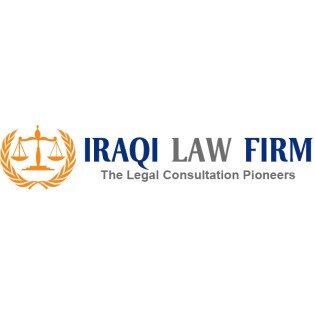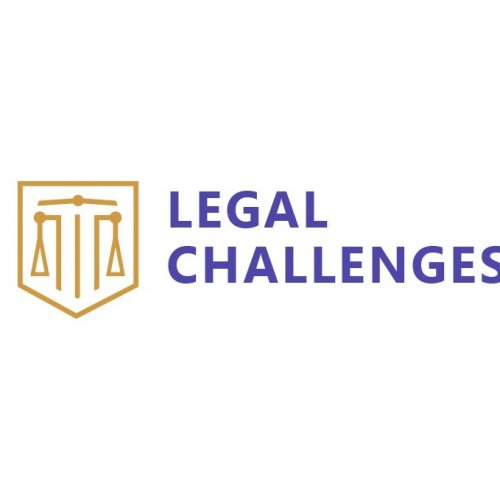Best Restructuring & Insolvency Lawyers in Baghdad
Share your needs with us, get contacted by law firms.
Free. Takes 2 min.
List of the best lawyers in Baghdad, Iraq
About Restructuring & Insolvency Law in Baghdad, Iraq
Restructuring and insolvency law in Baghdad, Iraq, governs the mechanisms available to individuals and businesses that are facing financial distress or an inability to meet their debt obligations. This legal field provides processes by which financially troubled companies or individuals can reorganize their debts, negotiate with creditors, or, if necessary, proceed to formal insolvency proceedings such as liquidation or bankruptcy. Iraqi law aims to balance the debtor's right to a fair chance of recovery with creditor's interests in debt repayment. Most restructuring and insolvency cases in Iraq, including Baghdad, are addressed under national legislation but may involve local customs and judicial practices specific to the Baghdad area.
Why You May Need a Lawyer
There are several situations where seeking a legal professional with experience in restructuring and insolvency in Baghdad can make a significant difference:
- If your business is unable to pay its debts when due and is at risk of insolvency or bankruptcy proceedings.
- If creditors are initiating legal action against you or your company, such as demands for payment or asset seizures.
- If you are considering debt restructuring, negotiation with creditors, or entering into voluntary liquidation.
- If you are a creditor seeking to recover debts from an insolvent entity and want to understand your legal rights.
- If you need to understand the legal consequences of defaulting on loans or other financial obligations.
- If you want to explore options for safeguarding your personal or business assets during financial distress.
A specialized lawyer can advise on the most appropriate legal steps, assist with negotiations, represent you in court, and help navigate the complex procedures involved in insolvency and restructuring under Iraqi law.
Local Laws Overview
The legal framework for restructuring and insolvency in Baghdad is primarily governed by the Iraqi Bankruptcy Law and related regulations. Key points include:
- Insolvency proceedings can be initiated by either debtors or creditors before the competent commercial court.
- The process may begin with attempts at restructuring or debt settlement agreements prior to moving to liquidation or bankruptcy.
- Iraqi law sets out criteria for insolvency, including the inability to pay debts as they become due and the overall financial position of the business or individual.
- During insolvency, creditors may be required to submit claims to participate in the distribution of the insolvent party’s assets.
- Certain transactions by an insolvent party before the formal declaration of insolvency may be scrutinized or invalidated if they are deemed harmful to creditors’ interests.
- There are penalties and liabilities for directors or managers if insolvency is caused by fraudulent or wrongful conduct.
- Restructuring agreements require approval by the majority of creditors and may also need court endorsement.
- For cross-border insolvency matters, both local and international standards may be considered, depending on the nature of the assets and creditors involved.
Local courts in Baghdad handle insolvency proceedings, and certain cases may involve economic crime or administrative law considerations specific to the capital region.
Frequently Asked Questions
What is the difference between restructuring and insolvency?
Restructuring involves reorganizing a company’s debts and operations to avoid insolvency or bankruptcy. Insolvency is the state of being unable to pay debts, which can lead to formal bankruptcy or liquidation proceedings.
Who can start insolvency proceedings in Baghdad?
Both debtors and creditors can initiate insolvency proceedings through the commercial court if debt obligations cannot be met.
Are there alternatives to bankruptcy in Iraq?
Yes, alternatives include private restructuring, out-of-court settlements, and composition agreements with creditors, all subject to legal and creditor approval.
What happens to employees during a company's insolvency?
Employees have priority for certain unpaid wage claims, but employment may be terminated depending on the outcome of insolvency proceedings.
Can individuals declare bankruptcy in Baghdad, or is it only for companies?
Both individuals and companies can be subject to insolvency proceedings under Iraqi law, though procedures and consequences may differ.
Will my personal assets be at risk if my business goes insolvent?
It depends on your legal structure and whether there are any personal guarantees. Sole proprietors are personally liable, while company directors may have protection unless there is proven misconduct.
What role do the courts play in insolvency and restructuring?
Baghdad commercial courts oversee procedures, approve creditor claims, resolve disputes, and may appoint liquidators or trustees to manage the process.
How are assets distributed among creditors?
Assets are typically distributed based on categories of priority set by law, such as secured creditors, employees, tax authorities, and then unsecured creditors.
Are there penalties for directors involved in insolvent companies?
Directors may face civil or criminal liability for fraudulent, reckless, or negligent actions that contributed to insolvency.
How long does an insolvency process take in Baghdad?
The timeline varies based on the complexity of the case and court workload, but proceedings can range from several months to a year or more.
Additional Resources
If you need further information or assistance, consider reaching out to the following resources in Baghdad:
- Iraqi Ministry of Justice - Commercial Courts Division
- Baghdad Chamber of Commerce
- Iraq Legal Consultancy Centers specializing in commercial law
- Federation of Iraqi Chambers of Commerce
- Local offices of international insolvency organizations and business support centers
These organizations can provide guidance, educational materials, or refer you to accredited professionals who can help with your restructuring or insolvency concerns.
Next Steps
If you believe you are in need of legal assistance with a restructuring or insolvency issue in Baghdad, it is important to act quickly to preserve your rights and options. Begin by gathering all financial records, contracts, and correspondence with creditors. Then, schedule a consultation with a qualified lawyer who specializes in commercial and insolvency law in Iraq. Be prepared to provide clear information about your situation and clarify your goals, whether that is debt restructuring, settlement negotiations, or formal insolvency proceedings. Your lawyer will guide you through the legal process, represent your interests before the courts, and help you determine the best strategy for your case.
Remember, early intervention and informed legal advice can often prevent unnecessary losses and improve the prospects for resolution, so do not delay seeking professional support if you are facing financial distress in Baghdad.
Lawzana helps you find the best lawyers and law firms in Baghdad through a curated and pre-screened list of qualified legal professionals. Our platform offers rankings and detailed profiles of attorneys and law firms, allowing you to compare based on practice areas, including Restructuring & Insolvency, experience, and client feedback.
Each profile includes a description of the firm's areas of practice, client reviews, team members and partners, year of establishment, spoken languages, office locations, contact information, social media presence, and any published articles or resources. Most firms on our platform speak English and are experienced in both local and international legal matters.
Get a quote from top-rated law firms in Baghdad, Iraq — quickly, securely, and without unnecessary hassle.
Disclaimer:
The information provided on this page is for general informational purposes only and does not constitute legal advice. While we strive to ensure the accuracy and relevance of the content, legal information may change over time, and interpretations of the law can vary. You should always consult with a qualified legal professional for advice specific to your situation.
We disclaim all liability for actions taken or not taken based on the content of this page. If you believe any information is incorrect or outdated, please contact us, and we will review and update it where appropriate.

















